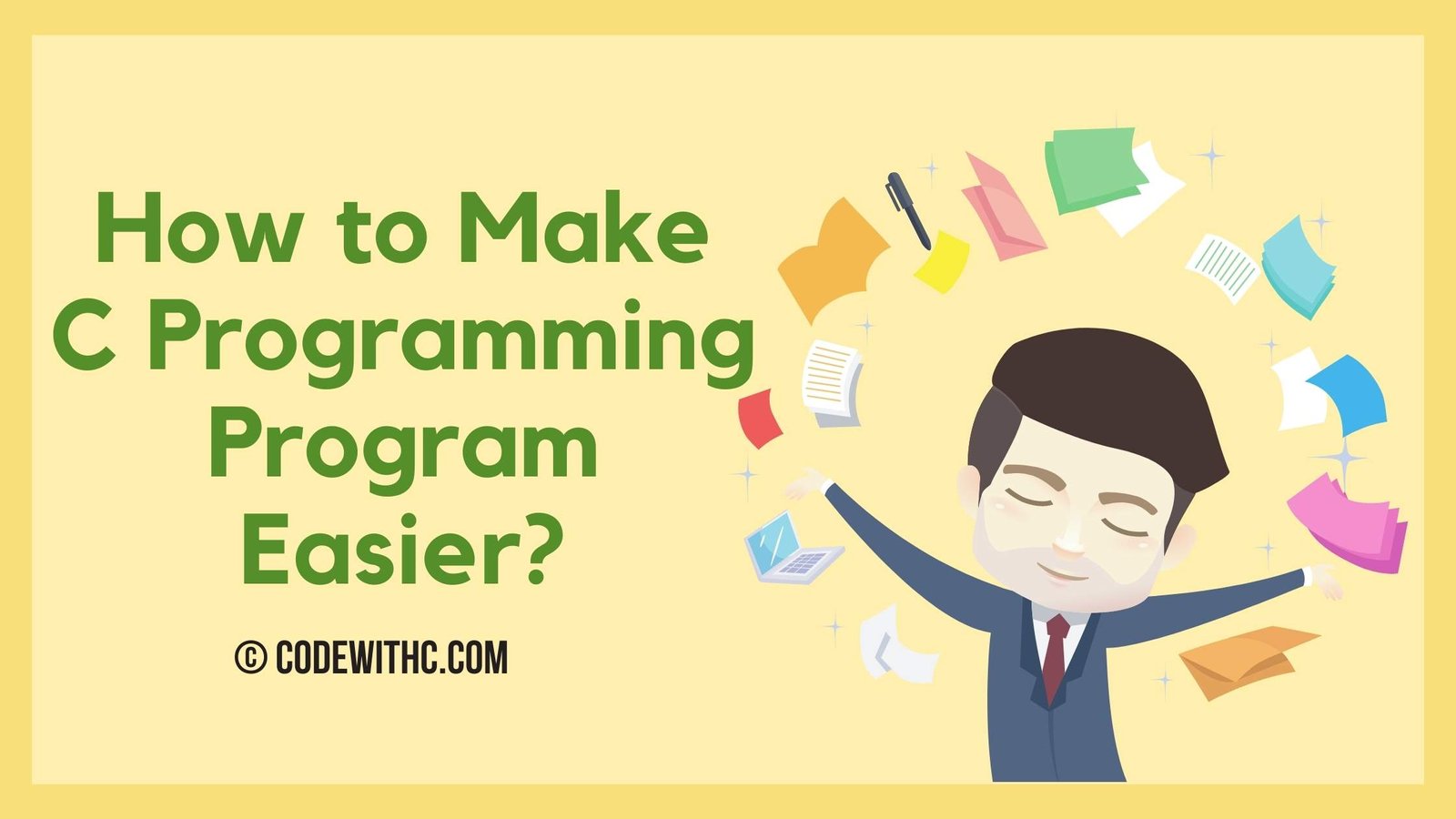How to Make C Programming Program Easier? If you are new to C programming then you may wonder how to make C programming easier. There are some basic programming concepts that you must have learned. C programming is a language that is very easy to learn and use.
If you are wondering why people need to learn C programming then you should read the below points.
C programming is the base of other programming languages
C programming is used in creating different types of applications and programs. Some of the major examples of C programming are:
- The C++ programming is used in creating web servers
- The C programming is used in creating operating systems
- The C programming is used in creating computer hardware
If you are a beginner then you must start with C programming as it will help you to build your knowledge.
Easy to understand
C programming is easy to understand as it is used to create simple programs that are used by computer engineers and programmers. Even if you are a beginner then you can easily understand the basics of C programming.
C programming is a good choice for beginners
C programming is a good option for beginners as you don’t need to learn any other programming language for it. This is the best reason for you to start with C programming.
Easy to use
C programming is easy to use as it doesn’t require a lot of tools for creating a program. All you need to do is to write the code and then compile the code for making it executable.
The following is a basic introduction to C
Language C has a rather steep learning curve, but it is not impossible to master. The good news is that most of the commands and functions in C are available in many programming languages such as Java, Python, and JavaScript. However, learning C directly will help you understand how these other languages operate and will help you write programs in them more efficiently.
C is an imperative programming language, meaning that statements such as “print this text” are executed before returning to the next statement. The C compiler converts the source code into binary machine code before compiling it. After the compiler completes its task, it produces an executable file that contains a set of instructions called an object file.
The process of linking multiple object files together is known as linking. A linker resolves the symbols referenced in the object files and generates a binary image. The linker writes information about the data types, the size of the variables, and the program structure. This information is needed by the runtime environment to run the program.
In the case of C, the main compilation steps are as follows:
- Source code is converted into a textual format known as an intermediate language.
- The intermediate language is parsed and translated into a control flow graph.
- The control flow graph is then compiled into assembly code.
- The assembly code is converted into object files containing binary machine code.
- Linking is performed to create an executable image.
- The executable image is loaded into memory and interpreted.
- A calling convention determines which function calls are invoked.
- Finally, the user executes the program.
While the above description describes the compilation and execution process of the C programming language, it does not specify how to write a program. If you want to see a real example of a C program, then the following source code represents the famous “Hello World!” program.
/*
* Simple C program that displays the string "Hello World!"
*/
main()
{
printf("Hello World!\n");
}
Here, the name of the program is main. The function name print is passed the string Hello World! and is responsible for displaying it on the screen.
Programmers will normally use a text editor to write source code. They will type the text and save it as a file with the. c extension. After editing and saving, the programmers will compile the code using a C compiler. A-C compiler is a program that parses the source code, translates it into assembly code, and compiles it into object files.
For the programmer to be able to run the compiled code, he or she must link the object files into a single binary image. This is done by another program, the linker. The linker resolves the external references in the object files and creates a binary image. The linker also writes information about the data types, the size of the variables, and the program structure. This information is needed by the runtime environment to run the program.
The following sections will discuss various C tools that will help you write and debug a C program.
C Compiler
There are several free and commercial C compilers available on the Internet. Most of these have a command-line interface and are easy to use.
For example, the GNU C compiler is freely available and can be downloaded from www.gnu.org/software/gcc/. You can download the compiler, documentation, and other resources from the site. The latest version of the GNU C compiler is 4.8.
The following are some of the main features of the GNU C compiler:
- The command-line tool GCC is used to build C source code.
- C source code can be edited in an integrated development environment such as Emacs, Vim, Eclipse, or NetBeans.
- The compiler can be run interactively from the command line.
- Compiling can be done in batch mode.
- A variety of optimization levels are available.
Conclusion:
As you know that C programming is the base of other programming languages, so you can start your career in a better way. If you are a beginner and you are looking to build your knowledge then I suggest you start with C programming. It will help you to build your skills and to become a master in the field of programming.
